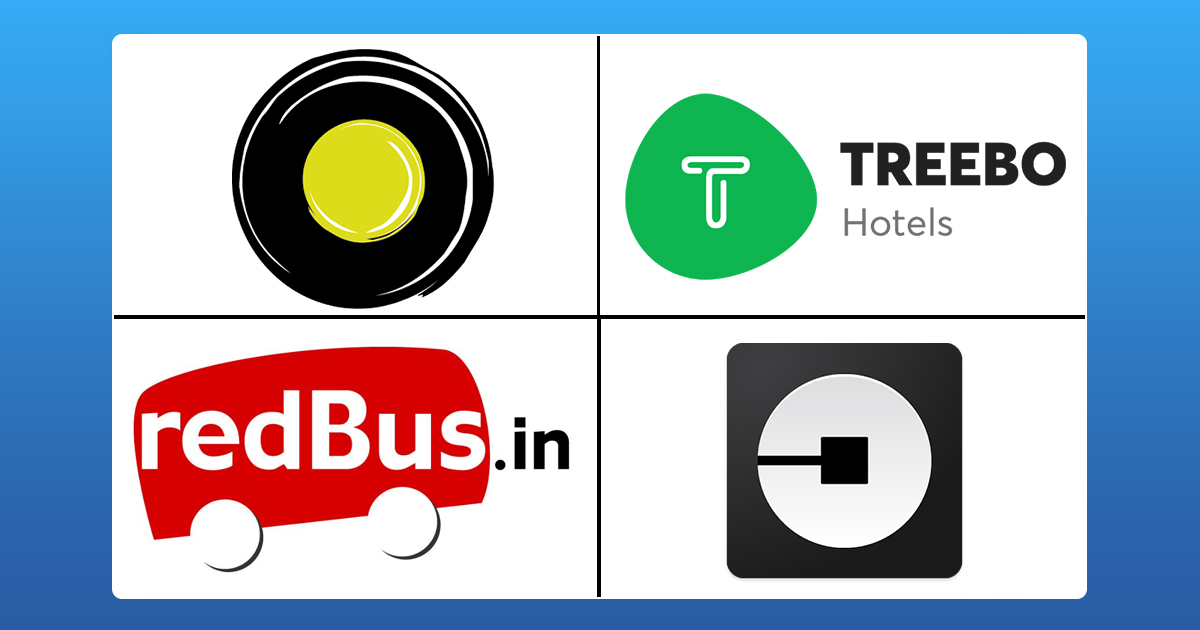Latest News
Startup Community Comes Together For Mumbai

Mumbai has been witnessing heavy rainfalls for the past two days and weather forecasts predict that this could be Mumbai’s longest and heaviest rainfall. Mumbai is currently facing water logged roads, traffic snarls and fallen trees in many parts of the city bringing life to a standstill. Movement of local trains was also affected, while flights were delayed or diverted leaving people stuck in offices, homes and on the roads.
When Mumbai Rains turned Mulund Station into Niagara Falls #MumbaiFlooded #MumbaiRains pic.twitter.com/DP9yYESIIh
— Wassup Mumbai (@Wassup_Mumbai) August 29, 2017
To help out any individual in need many Mumbaikars have opened up their homes and offices to fellow citizens stuck or struggling on the streets. People took to twitter to let others know who to contact or call for assistance or seek shelter in neighboring areas.
Dadar Sikh Gurudwara served food & provided shelter all night to Mumbaikars. Sikhs also sent food to Dadar Stn. & Tata Hospital #MumbaiRains pic.twitter.com/OWGR0UkWoM
— Harjinder S Kukreja (@SinghLions) August 30, 2017
PLZ share this as much ad possible.
Stay safe Mumbaikars #MumbaiRains #mumbaifloods #MumbaiFlooded
Please give lift to ppl who r walking🙏 pic.twitter.com/7GJzCIdsOF— Rahul Suthar (@RahulSuthar27) August 29, 2017
Not wishing to be left behind the startup community also rallied and stepped up, offering free accommodation, food and shelter as Mumbaikars battle the worst rains in over a decade using their resources to help the city’s beleaguered citizens.
World’s largest online bus ticketing platform RedBus announced it was letting stranded Mumbaikars stay at its hotels for free and provided a number for coordination.
#Help for ppl stranded in #MumbaiRains
Call redBus Hotels on 08030970888, we’ll arrange free stay in the nearest hotel. RT to spread word.— redBus (@redBus_in) August 29, 2017
Fellow hotel aggregator startup Treebo also opened their hotels and tweeted the locations where people could stop and rest.
Be safe in the #MumbaiRains. Head to your nearest #TreeboHotel & stay for free. Spread the word. pic.twitter.com/U7GiQ6b3Kh
— Treebo Hotels (@TreeboHotels) August 29, 2017
Fwd: Anyone stuck in Mumbai, call Ayush Goyal on 8130199119. @TreeboHotels across Mumbai available to halt and rest. pic.twitter.com/nvQl4NF6F9
— Shrutin Shetty (@shrutinshetty) August 29, 2017
Search engine giant Google also ran alerts on its search page and provided useful information including a map of the areas affected, a red SOS warning and a link to the official Mumbai police Twitter handle.

Craft beer company Doolally also opened their doors for the people in Bandra, Khar, Andheri West, Colaba and Pedder Road with a promise of tea.
Need a place to hang in Bandra, Khar, Andheri West, Colaba or Pedder Road? Head to @godoolally – doors are open, chai’s on us. #MumbaiRains
— Mahesh Murthy (@maheshmurthy) August 29, 2017
Cab hailing startups and rivals Ola and Uber also promised free rides and shuttles for Mumbaikars. Uber users can use the code ‘MUMBAIRAINS’ for free UberPOOL rides and the company has also canceled dynamic pricing during the heavy rains.
Use code ‘MUMBAIRAINS’ for free uberPOOL rides home, with Mumbaikars heading in the same direction. Stay safe: https://t.co/Cdq02ntVWU (2/2)
— Uber India (@Uber_India) August 29, 2017
Ola has also offered to run free shuttle services in multiple locations to ferry stranded citizens to shelters.
#Mumbai We’re running free Shuttle services to get you safely to your destination from these locations https://t.co/sHfGSoNAl5 #MumbaiRains
— Ola (@Olacabs) August 29, 2017
Brihanmumbai Electric Supply and Transport’s (BEST) official mobile ticketing and pass renewal app Ridlr Mumbai has also used the microblogging site Twitter to keep the citizens updated regarding the weather conditions and traffic congestion in the city.
Mumbai police have also used the platform to its fullest capabilities to help stranded citizens by tweeting useful information and contact details.
If your car is out of fuel/ stranded #Diall100 or 8454999999 or tweet us for free towing till the nearest fuel pump or garage #mumbairains
— Mumbai Police (@MumbaiPolice) August 30, 2017
If you live in Mumbai or are stuck there right now, please be strong and stay safe. Contact the helplines available if you are stuck or need help.
#MumbaiRains | Stay safe, Mumbai. Here are some important helplines that you can reach out to
Track LIVE updates: https://t.co/A0mVRRYPPI pic.twitter.com/QH8skBquTX
— NDTV (@ndtv) August 29, 2017
Latest News
Peak XV New Funds: $1.3B Commitment for India Startup Surge 2026

Peak XV Partners has launched three new funds totaling $1.3 billion, targeting India’s booming startup ecosystem. The lineup features the $600M Surge fund (8th edition) for early-stage ventures, a $300M Growth Fund for Series B+ scaling, and a $400M Acceleration Fund for rapid portfolio expansion. This commitment arrives as India’s VC inflows rebound, with AI and fintech leading 2026 trends.
These funds build on Peak XV’s legacy of backing unicorns like Zomato and Pine Labs, offering founders capital plus strategic guidance amid post-winter recovery. Early-stage deals surged 20% last year per Tracxn, positioning Peak XV to fuel the next wave of innovation in SaaS, climate tech, and consumer plays.
For startups eyeing Peak XV new funds or Surge fund 2026 applications, this signals prime opportunities. Investors and marketers should watch for deployment updates India remains a global VC hotspot.
Latest News
D2C Brand Neeman’s Raises $4 Million for Tier 2/3 Store Expansion & Eco-Friendly Shoes

Hyderabad, January 13, 2026 Neeman’s, India’s leading D2C footwear brand famed for sustainable shoes and patented PIXLL® technology, has raised $4 million from existing investors. This funding boosts its cumulative capital past $10 million since 2015, with a post-money valuation nearing $50 million. CEO Vijay Chahoria emphasized offline retail as the “next frontier,” planning 50+ new stores in Tier 2/3 cities like Jaipur and Lucknow to blend eco-friendly innovation with hands-on customer experiences.
In India’s booming D2C ecosystem where footwear sales hit ₹1.2 lakh crore in 2025 Neeman’s targets hybrid retail amid high online CAC and 25-30% returns. Backed by vegan, machine-washable shoes priced ₹2,000-4,000, the brand leverages PIXLL® (5x more breathable than leather) for carbon-neutral comfort. Recent 5x revenue growth to ₹100 crore ARR, 1M+ pairs sold via Myntra and stores, and awards at India D2C Summit 2025 position it ahead of rivals like Paaduks.
Neeman’s offline expansion India eyes the $15B sustainable footwear market by 2028, fueled by PLI schemes, Gen Z’s 70% eco-preference (Nielsen), and Southeast Asia exports. Challenges like real estate costs are offset by data-driven inventory and omnichannel QR tech. Watch for Q1 2026 launches in Hyderabad and Bengaluru redefining D2C success through authentic, “Wear the Change” branding.
Latest News
Centre Mulls Revoking X’s Safe Harbour Over Grok Misuse

The Centre is weighing the option of revoking X’s safe harbour status in India after its AI chatbot Grok was allegedly misused to generate and circulate obscene and sexually explicit content, including material seemingly involving minors. The IT Ministry has already issued a notice to X, directing the platform to remove unlawful content, fix Grok’s safeguards, act against violators, and submit a detailed compliance report within a tight deadline. If the government finds X’s response inadequate, it could argue that the platform has failed to meet due‑diligence standards under Indian law, opening the door to harsher action.
Under Section 79 of the IT Act, safe harbour protects intermediaries like X from being held directly liable for user‑generated content, provided they follow due‑diligence rules and promptly act on legal takedown orders. Revoking this protection would mean X and its officers could be exposed to criminal and civil liability for obscene, unlawful, or harmful content that remains on the platform, including AI‑generated images from Grok. This prospect significantly raises X’s compliance risk in India and could force tighter moderation, stricter AI controls, and more aggressive removal of flagged posts.
The Grok episode also spotlights the regulatory grey zone around generative AI, where tools can create harmful content at scale even without traditional user uploads. Policymakers are increasingly questioning whether AI outputs should still enjoy the same intermediary protections as conventional user posts, especially when they involve women and children. How the government ultimately proceeds against X over Grok misuse could set a precedent for AI accountability, platform responsibility, and safe harbour interpretation in India’s fast‑evolving digital ecosystem.













MM88
November 8, 2025 at 3:39 am
Với giao diện mượt mà và ưu đãi hấp dẫn, MM88 là lựa chọn lý tưởng cho các tín đồ giải trí trực tuyến.
J88
November 9, 2025 at 4:04 pm
Đến với J88, bạn sẽ được trải nghiệm dịch vụ cá cược chuyên nghiệp cùng hàng ngàn sự kiện khuyến mãi độc quyền.
站群程序
November 10, 2025 at 7:40 pm
搭载智能站群程序,自动化搭建与管理,为SEO项目提供核心驱动力。站群程序
MM88
November 12, 2025 at 1:29 pm
Khám phá thế giới giải trí trực tuyến đỉnh cao tại MM88, nơi mang đến những trải nghiệm cá cược thể thao và casino sống động.
ios超级签
November 14, 2025 at 10:00 am
苹果签名,苹果超级签平台,ios超级签平台ios超级签苹果企业签,苹果超级签,稳定超级签名
Kuwin
November 18, 2025 at 9:15 am
kuwin sở hữu kho game đa dạng từ slot đến trò chơi bài đổi thưởng, mang đến cho bạn những giây phút giải trí tuyệt vời.
iwin
November 23, 2025 at 4:32 pm
iwin – nền tảng game bài đổi thưởng uy tín, nơi bạn có thể thử vận may và tận hưởng nhiều tựa game hấp